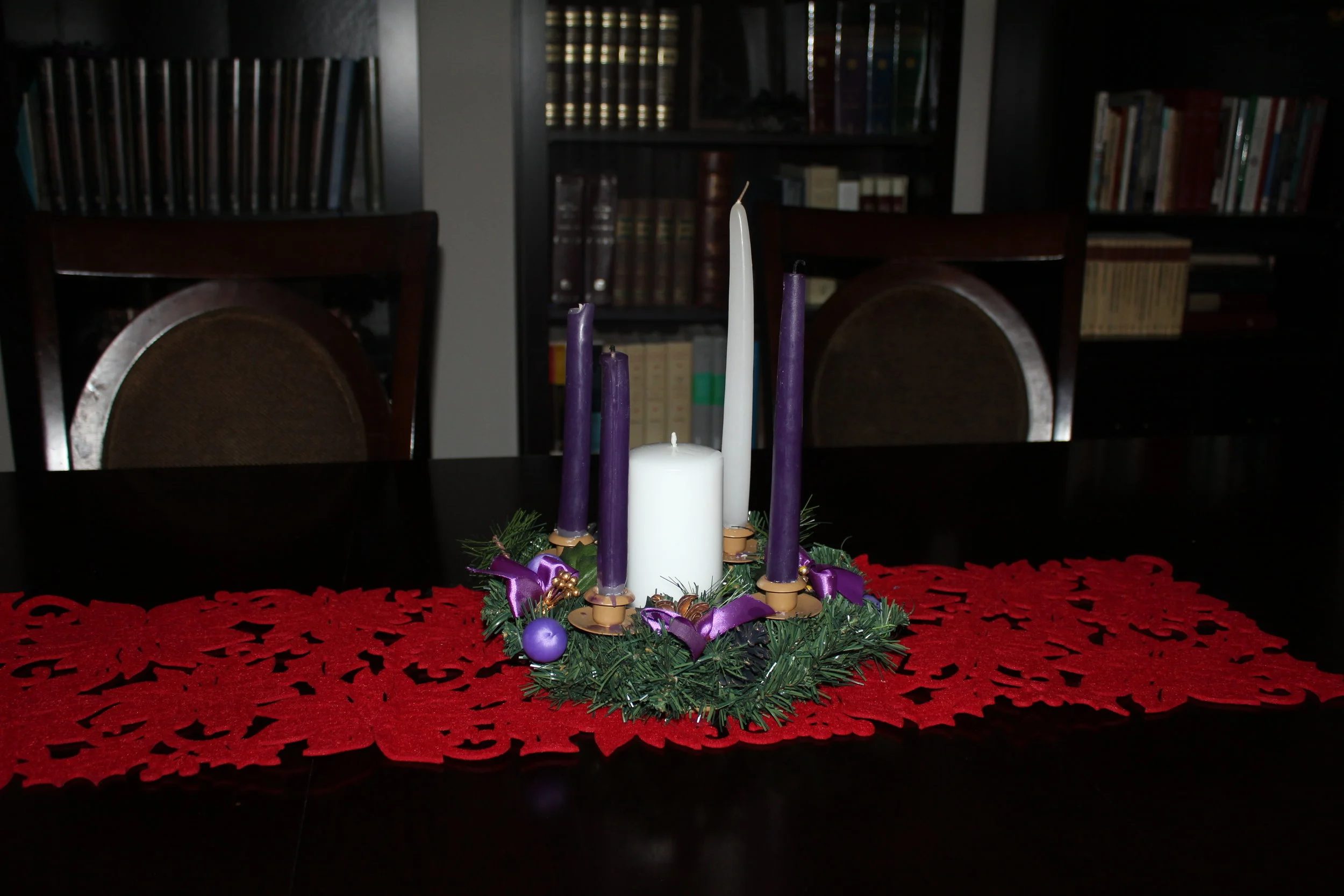Idols During Advent
Before joining our current Presbyterian church, Alaina and I served at a Southern Baptist Church where my father was Senior Pastor. In spite of our growing and maturing Reformed theological beliefs, we were able to serve in a variety of ways that ranged from teaching to leading music. When all was said and done, I led the music time for over five years playing guitar and singing on both Sunday mornings and Wednesday evenings.
The Christmas season was my favorite time of the whole gig. The song keys changed to things more moderate to my voice, the melodies were less generic, and the lyrics seemed extra charged with valuable theology. The first song on the first Sunday and first Wednesday would always be some rendition of “O Come, O Come, Emmanuel.” And the renditions truly did range from year to year and service to service. Christmas music seemingly begs for mild creativity in representing it. Perhaps it is the girth of Christmas albums that all suggest to some degree that an artist can provide an improvement upon other renditions.
Be that as it may, it became evident to me that the number of actual Christmas songs known to the congregation was substantially fewer than the number in the hymnal. Even in the first year, I decided to go about introducing one or two new Christmas songs. It provided a time of introspection on new lyrics and no favorites were skipped. Wednesday nights, in particular, were good for introducing new music. The smaller group, stripped down music, and darker evening setting allowed for a private and quiet sense of learning.
After one such Wednesday service, one of our pianists called me over to the piano and opened the hymnal. Most of the people had left to talk in the foyer and the lights were still dim providing the sanctuary with a Christmas glow. He told me I should listen to a song. He played the entire song without singing. The “Picardy” minor tune was moving in the darkness. And then he began to sing “Let All Mortal Flesh Keep Silence.” It is hard to hear the song without becoming enraptured. We proceeded to sing through it twice and added it to the following Wednesday evening’s set list. It would quickly become a favorite of the entire congregation.
The song itself traces its origins to a Cherubic hymn (hymn of entry) from the Divine Liturgy of St. James. Dating it to the 3rd century, it remains one of the oldest songs sung by the church today. Despite being translated into English and sung to a French folk tune, the majesty of the song has not been lost. The beauty of the lyrics has not allowed the song to slip out of use in over eighteen hundred years. With its opening words for Habakkuk 2:20, the entire first stanza is chilling:
Let all mortal flesh keep silence,
and with fear and trembling stand;
ponder nothing earthly-minded,
for with blessing in his hand,
Christ our God to earth descendeth,
our full homage to demand.
In the Divine Liturgy, these words are meant to be sung to bring the congregation to an awareness that true worship is about to begin. Heaven and earth are about to meet. As the faithful congregate, “Our God” descends to earth. And our response is silence, fear, and trembling. The whole scene is gorgeous. It is a reminder that with Christ in our presence nothing should be before Him in our minds or hearts.
But how does this prepare us for Advent? Isn’t this song with its second verse (e.g. “King of kings, yet born of Mary, as of old on earth he stood”) more of a year-round or Christmas hymn? I’d suggest that the song transitions us from Advent to Christmas. But for a fuller answer on how it applies to Advent, the context of Habakkuk needs to be distilled.
What Profit is an Idol?
The prophet Habakkuk remains a mystery to Biblical scholars. There is almost no concrete information about the prophet’s place of birth, ministry, death, or lifespan. As a blank slate, the passages attributed to him provide interesting interpretative questions. Thankfully, the source verse of “Let All Mortal Flesh Keep Silence” is a rather straightforward passage. It will not take much effort to glean an Advent-related truth from the prophet’s beautiful words:
“What profit is an idol
when its maker has shaped it,
a metal image, a teacher of lies?
For its maker trusts in his own creation
when he makes speechless idols!
Woe to him who says to a wooden thing, Awake;
to a silent stone, Arise!
Can this teach?
Behold, it is overlaid with gold and silver,
and there is no breath at all in it.
But the Lord is in his holy temple;
let all the earth keep silence before him.” — Habakkuk 2:18-20
Whether because we have grown up with “Christian judgment” or because of our anti-supernatural modernity, the imagery of an idol maker looking for answers and speech from his idol is quite humorous. Who walks up to a stick and asks it to give him the meaning of life? We often think our own hearts are not so vagrantly deceived. But as John Calvin wrote, “Man's nature, so to speak, is a perpetual factory of idols.” All of us are guilty of being the idol maker. And most of us are guilty of not admitting we are the idol maker. We might not walk up to a stick, but I imagine that Twitter or Facebook does just fine as a substitute. We cannot escape the force of this passage. As the verse states, “let all the earth keep silence before him.”
Even our technological, philosophical, or political idols have “no breath at all in it.” They cannot teach us anything about the creator and His goodness. They are speechless, and yet, we incline our fallen hearts to trust them. It is against this trust in self that the Lord thunders His presence. He and He alone “is in his holy temple.” He reigns above “all the earth.” Before Him, not only are our idols silent but so is “all the earth.” It is this scene that provides gravitas to the opening stanza of our song and communicates a stirring resolve for Advent. For we attest that God does not remain there, but He, in fact, does descend down to us.
Advent is a time to set aside the pomp and circumstance of secular celebration. It is a time to clean house on our “speechless idols” and “silent stone[s].” Maybe that entails time away from social media or less spiked eggnog. It might mean taking less pride and confidence in our religious traditions. It is impossible to conceive of all the silent idols our hearts may create.
But it is important to remember that none of this is because we must earn God’s favor. No, Advent is about the God who draws near. We respond this way because God in His grace has communicated that He in all His splendor is about to descend in the Nativity. We stand on the precipice of the God of Heaven and Earth descending “with blessing in His hand.” Against this scene, what could we do but remain silent for a time?
With this in mind, we can joyfully encounter the stanza of “Let All Mortal Flesh Keep Silent” reserved for Christmas:
King of kings, yet born of Mary,
as of old on earth he stood,
Lord of lords, in human vesture,
in the body and the blood;
he will give to all the faithful
his own self for heavenly food.
On Christmas day, we can sing with joy that our “heavenly food” is in fact “born of Mary.” “The body and the blood” is given to us on Christmas day in which—as the third stanza states—“the powers of hell may vanish as the darkness clears away.” But before these joyous days, there is for us a time of silence. A time of fear and trembling in which those who know God and His promises may “ponder nothing earthly-minded.”






